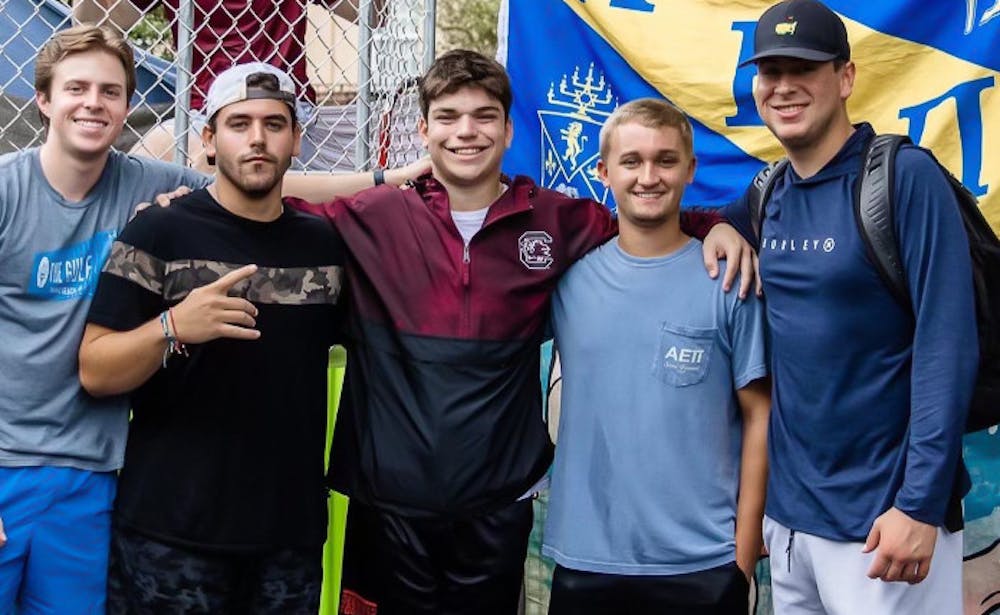Alpha Epsilon Pi (AEPi), the Jewish fraternity on USC’s campus, developed its mental health program, “Good and Welfare,” to introduce new members to the fraternity’s supportive community.
The program started as casually sharing “highs” and “lows” with fraternity brothers each week but then turned into hosting regular meetings at different brothers’ houses to check in on one another and discuss each other's mental health.
“No one really speaks about [mental health] unless they’re behind closed doors with maybe their roommate if they have a good relationship. So really, what we’re doing here is trying to start that conversation,” Thomas Lentine, the president of AEPi and a fourth-year psychology and women and gender studies student, said.

Lentine was a part of the group that founded Good and Welfare two years ago. He was approached by Max Bass, a third-year sports and entertainment management student, and Mitchell Marcus, a third-year business economics student, with the idea to bring mental health to the forefront of the organization’s cause.
The three discussed the idea of creating a mental health chair within AEPi's leadership. However, they decided that interactive meetings that aren't dependent on one position would better serve the needs of the members.
“It’s a great open space to communicate whatever you want, whether it's you’ve been having a really good week that you just want to talk about or a really bad week and you need to get stuff off your chest,” Bass said.
Mental health is something that many college students struggle with, said Nick Marzullo, the president and founder of Gamecocks for Positivity, a club dedicated to spreading acts of kindness on campus. Despite this, Marzullo has noticed a stigma around men’s mental health, especially in fraternities, where it isn’t taken seriously.
“Greek life as a whole is very heavily based on social identity, and many people fall into the trap of competing against each other,” Marzullo said.
That pressure and stigma that Greek life can place on students is something that AEPi is hoping to resolve with its program, Lentine said. The benefits of opening up at its Good and Welfare meetings are already being noticed by members.
“At the beginning of last spring semester, my parents were going through a divorce,” Bass said. “To come back to a group of people that I trusted … I felt very embraced and very welcome. Numerous people were always reaching out like ‘I’m here for you.’”
This support is something that AEPi is amplifying with its first-year students by creating a supportive environment that can help ease their transition into college.
“I was struggling a lot last year in the fall and going there definitely did help a lot,” David Debiasi, a second-year psychology student, said.
The Good and Welfare program is already underway this semester with meetings being held weekly to biweekly. This year, new members were sorted into smaller groups led by an older member to check in on them and facilitate their transition into college and the program.
While this program is specific to USC’s chapter of AEPi, it hopes to see the topic of mental health adopted by other fraternities on campus.
"It doesn't take a lot to check in on someone ..." Marcus said. "So take those few minutes to check in as that's all it really takes to get someone to open up."

